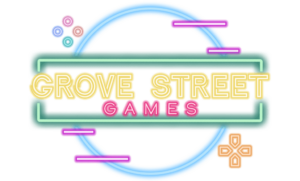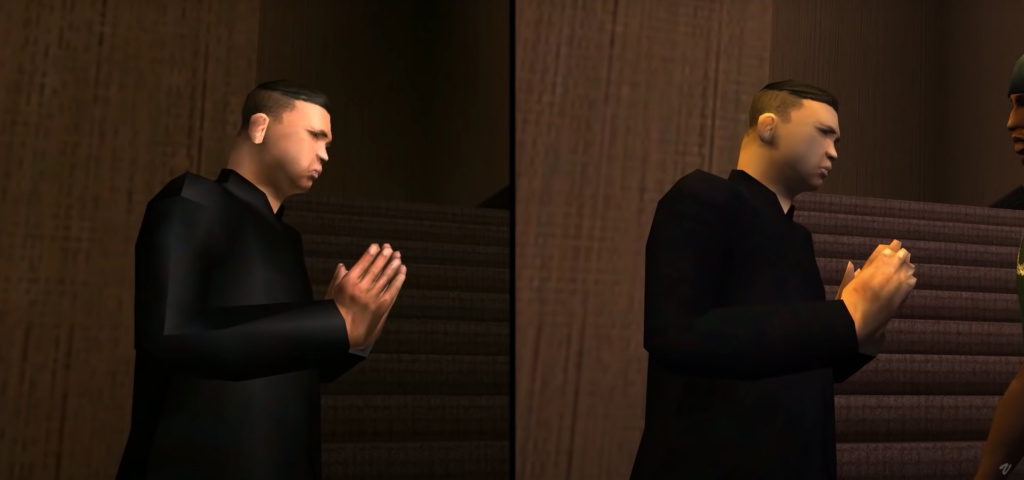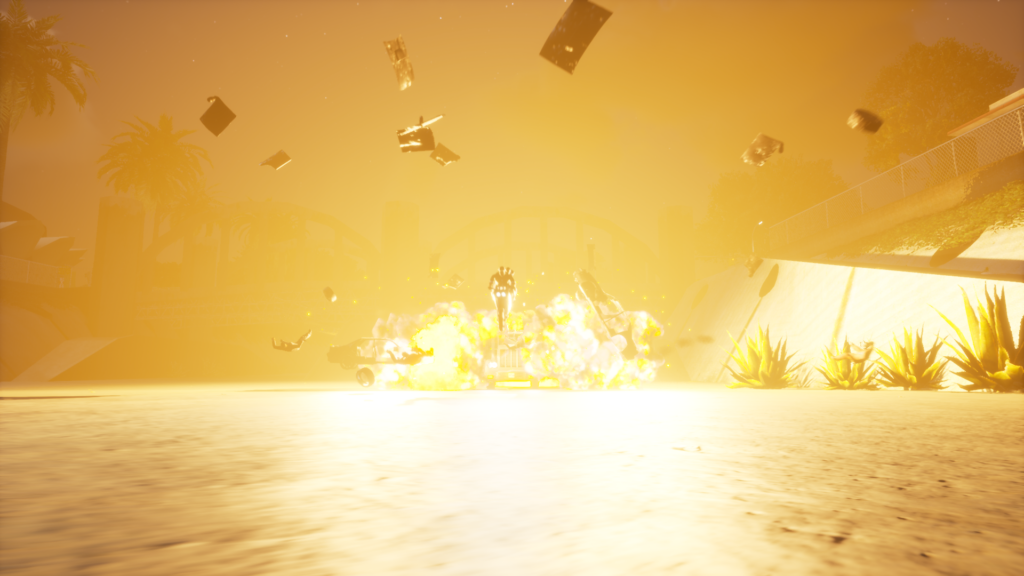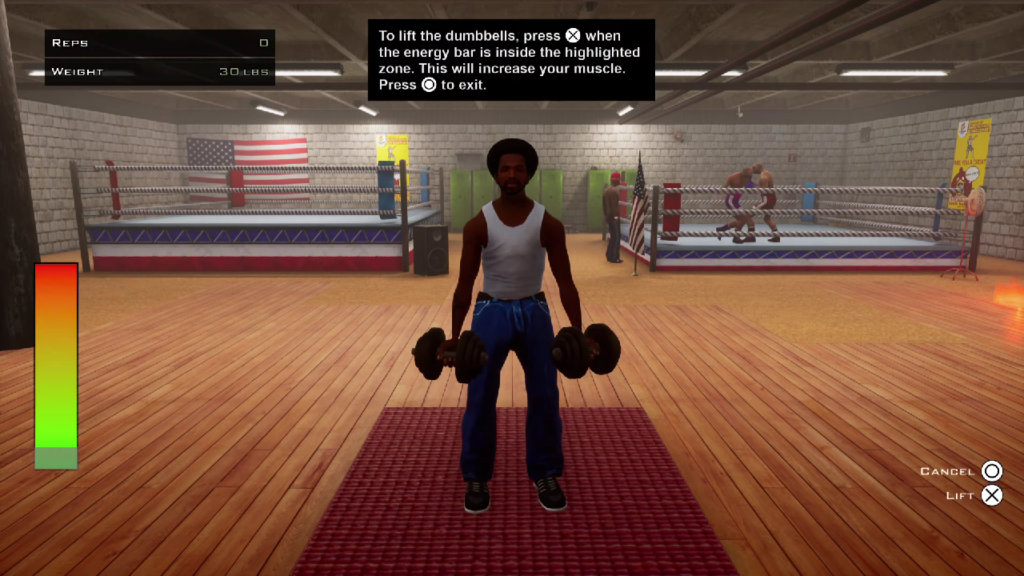I suppose at this point an article of this nature doesn’t really need an introduction. We are all very well aware of how the GTA Trilogy Definitive Editions are being received, and the community’s perspective of how it was all handled. Kirsty put up a summary of events a few days ago that you should check out.
In this piece I’d like to focus on something a little different. Be aware that this is merely personal opinion and does not represent the thoughts of everyone at GTANet. It is also conjecture, and none of the information in this article is based on any real knowledge of the events that transpired the release, I’m merely an enthusiast, observer and a long-time Rockstar Games fan, so none of what I am saying is based on experience. I am also not going to get into too much detail with my opinion of the remasters themselves, this is merely an opinion article about the release and an overview of past events.
This will cover a few specific subjects that I’d like to make an overview of and give a couple of opinions about, even despite liking these games a lot more (apparently) than some of the community: an overview on who Grove Street Games are, what was the San Andreas mobile port that made the community become sceptic about the developer, the process of the community finding out that Grove Street Games were behind the release, and my view on the management of its release, along with some discussion on what could’ve been better.
Nazar Spider Speaks!
Who are Grove Street Games? How do they relate to Rockstar?

Grove Street Games (GSG) were formed in 2007, originally named War Drum Studios, and were the authors of games like the History Channel licenced Great Battles: Medieval for mobile and Gen 7 (Xbox 360/PS3) consoles, the mobile port of Ark: Survival Evolved (which they still maintain), and more importantly, most Rockstar Games mobile ports – Max Payne 1, GTA 3, GTA Vice City, Chinatown Wars, Bully… Among those, there was also the infamous (we’ll get there…) port of GTA San Andreas.
For the 10th anniversary of GTA III in 2011, they were contracted (as War Drum) to port the original game to mobile – with new controls, some mobile-friendly design changes, and more. Later in 2012, Vice City got the same treatment. Those ports weren’t too badly received, with just some reviewers pointing out that the controls weren’t great and some bits like combat were even more frustrating, but otherwise, they were solid GTA’s-on-the-go.
San Andreas mobile port – community relations sour
2013 was the year that War Drum Studios/Grove Street Games saw themselves between the sword and the wall. GTA San Andreas had been ported to mobile devices… except it was nothing like the previous two ports. Many liberties had been taken to try and make it look different on the same renderer, many things were changed in minigame and mission design, and the ports were riddled with glitches and other design decisions that the community deemed questionable. Later, these same mobile versions were ported to the then-current generation consoles – Xbox 360 and PlayStation 3, and even more issues were introduced.

Modding and datamining community member Vadim M. made a few aggressively worded (but detailed) videos about the mobile versions (named by the community “remasters” although only one Rockstar Newswire article mentioned they’d be “remastered” graphics for mobile, the release isn’t named this – which should’ve tempered people’s expectations), which point out many of the mistakes and bugs included in those releases, and how it got even worse on consoles. The ports attempted to make things better, and in some situations succeeded, but not without making other parts of the game look (and sound) jarring in comparison to the classics.
I don’t think I need to describe the commotion around these releases too much after linking Vadim’s videos. Starting from here, the community viewed War Drum Studios/GSG very differently, with scrutiny that they never really recovered from, due to how people considered the port “objectively bad” and “unplayable”.
Community opinions, especially the modding community’s, towards mobile releases soured even further, as Rockstar replaced War Drum Studios with Lucid Games for GTA Liberty City Stories’ mobile port. Despite the fact that it was a much better and stable mobile port, hawk-eyed modders instantly discovered that Lucid Games had used modders’ textures for their mobile port, without permission or credit. This, among some other (admittedly personally minor in comparison to San Andreas) mistakes found in the port made the community become even more cynical towards Rockstar mobile releases.
As I write this, Lucid Games doesn’t even list GTA LCS in their official list of projects, so take from that what you will.
War Drum Studios is rebranded to Grove Street Games
A good while back, a few years after those mobile ports, the community discovered a developer named Grove Street Games, teasing a secret project on their website. Shortly after, it was discovered that it was just a rebrand of War Drum Studios. The community questioned themselves whether this was a jab at Rockstar after the mobile port fiasco (that maybe they didn’t take seriously), or a conscious decision due to working on new projects with them. Reality was that they named themselves Grove Street Games, after the neighbourhood in Gainesville, Florida of the same name, which is where they are located.
This still made some of the community’s ears perk up and I must admit I found it a pretty interesting naming choice too, as at first I also believed it was a jab at Rockstar.
Definitively Grove Street Games Edition

A few days before the official announcement, after previous leaks of game art and game synopsis that had been uploaded early to prepare for the impending announcement and pre-order, the PC system requirements were leaked from Rockstar Games Launcher metadata.
Why is this relevant, you ask? This same file contained a very important piece of information, that would shape the community’s perspective of these Definitive Editions permanently, even before we got all the details – “adapted by Grove Street Games“.
This was only discovered the day the Definitive Editions were officially listed on the Rockstar Games Store, and the community started melting down, when they realised these were the same developers behind the San Andreas mobile ports. When footage was released, and the community considered some of the art (such as character models) in the reveal screenshots looked subpar or inconsistent, things took an even worse turn, especially among those who were already sceptical.
As all of their portfolio was mobile games, I initially believed they would only be behind the mobile ports of the Definitive Editions, despite thinking it was rather odd for them to be listed in the PC store. Credits in the games industry are a huge point of debate, with pretty nonsensical restrictions and requirements, so I thought Rockstar were still naming them for the sake of recognition (as all developers who work on a game, working on any position, should).
The reveal of who really was behind the ports and the community’s reaction brings me to the next section.
Publisher-developer relations – a view
Skipping past the even further exacerbated community meltdown over character models and some of the game’s visuals, including inconsistent art in screenshots (which even mainline Rockstar games have because they are taken at different points in development, it’s just how it works in the industry many times), I would like to get into something a bit deeper – after summarising the scepticism behind Grove Street Games’ name: who is who in this situation?
Despite the fact that Rockstar did publish and help produce this project, and were the ones who (again) contracted this specific company to work on the games, ultimately, in my view, Grove Street Games were the lead developers behind the project. Grove Street Games were (I assume, mostly) the ones who had access to the game’s code, grabbed most of Rockstar’s formats, converted them all (almost, except animations, gameplay/economy data and scripts for example) to Unreal Engine 4, worked on the character models, remade some of the buildings and other art, recompiled the scripts, managed their own repositories which included original game tools, code, etc.
What this means is, that judgement on the quality of the remasters doesn’t only sit on one side of the fence, or both equally. To me, it is mostly on the developer, and then the rest is on the publisher who should monitor the development process and ensure everything is up to standards, but also does not have to handhold the developer every step of the way. The reason why Rockstar trusted Grove Street Games again to port some of their most beloved and nostalgic games to a new engine, and remaster them after the controversial GTA San Andreas mobile port has been a big point of debate in the community, but again, Grove Street Games did seem to do most of the work, with Rockstar helping out with the publishing aspect (and some other minor aspects) and giving them access to certain assets (whose liberal use ended up causing some weird anachronisms – websites in ads in 1986, NOOSE in Vice City…). In a sense, this also means R* publishing should have been a lot more hands-on with the project, ensuring it’s up to standards and expectations. More on that later.
The Beast is unleashed… and leaked
On November 10th, the game released early in Oceania and eastern Asia because PlayStation didn’t want to honour Rockstar’s official release time. This is not unheard of, and Sony has released games early before for many other developers. Rockstar had announced in a support article that the games were releasing worldwide at 3 PM Eastern (New York) time, but Sony obviously had other ideas.
Where the smoke sparks a fire is with the PC release. At 3 PM Eastern, the PC version is released along with all others, as programmed. That is until three hours later the Rockstar Games Launcher is completely taken down and so are Trilogy downloads, along with all other Rockstar PC games because they needed Launcher authentication.

By that time, modders and dataminers had found out that Grove Street Games left not only original Rockstar-created tools to compile localisation files from text sources and script compilers, but also the source to those same script files, something they already had done with the previous games’ mobile ports, which personally raises a gigantic question mark about their actual source control pipeline and how they handle private information – I have a big post on GTAForums about this, and ultimately I do point more of my fingers at GSG for this than at Rockstar. Because source code and private tools are, well, private (and leaks are bad) and under very strict NDA’s in the industry, Rockstar rushed to shut it all down and remove everything over the weekend – the PC game was back by Sunday night without the private files.
Obviously, Rockstar, as the publisher, knowing about the state of these releases and seeing online “feedback” (yes, with quotations, because most wasn’t constructive), issued an apology and mentioned that more patches would be coming in the future, which is something that didn’t surprise me whatsoever, despite some of the community’s scepticism about Rockstar publishing even caring about their own games (come on…) – it was just bound to happen and the amount of scrutiny and criticism wouldn’t let them just ignore the games. It really isn’t up to their normal standards.
Why Grove Street Games? What could have been better on both sides?
This is where I once again started looking at Grove Street Games as a developer, especially given their previous San Andreas mobile adventure and its reception. I don’t do the whole Internet outrage language of “lazy devs” or whatever other spiel, there is no such thing – these games, despite their faults, had a lot more work put into them, especially on the programming side, than it seems – but more and more I think that they not only weren’t fit for the task, but they also were not completely able to handle a bigger project like this.
It doesn’t help that the aforementioned source code leaks had comments from GSG that, to the community and most laypeople, seem to have put on blast their willingness to work on these even further, with them sounding upset that Rockstar testers were requesting fixes so things would look and play better, and you wouldn’t see enemies despawning, among other things and tweaks. Testing is extremely underappreciated in the industry, and for a company like Rockstar, who work on much more complex and nuanced games in-house, it’s normal that their testers will help to try and make things as close to perfect as possible, but it’s up to the other teams to actually consider and fix.
In an environment with all kinds of different roles (testers, systems/world/tech designers, project leads, producers, coordinators, programmers and artists with separate specialisations, etc. etc.) and a big communication network when it comes to decision-making and transferring issues around, it’s normal for some of these departments to take jabs at each other – maybe because they think a certain bug reported by QA is far too nit-picky, or a lead or some department isn’t willing to change something that another department or individual requested, and that frustration is let out in the code for others to laugh at or acknowledge – just regular large-scale teamwork “problems”, not everyone will agree with everything and most projects will ship with choices not everyone agrees with.
The thing is, in this circumstance, based on what the community already thinks about Grove Street Games as a developer and how “careless” they seem to have been in the past, these comments found in the leaked script source code don’t put them in a great light in the community’s eyes, especially after they seemingly have repeated the exact same mistakes from the past, and the amount of love put into the project by them seems questionable, almost as if they were thinking R* was being too demanding. Tweets and forum posts have been posted questioning their willingness to even listen to Rockstar’s instructions when given, as the owners of the original Trilogy property, among other critical feedback.
This circles back to the heading question in this section (which is fully on Rockstar publishing in this case): Why Grove Street Games again?
The same mistakes from the mobile port era were made and some of the same odd decisions were made – they even reused the (almost) exact script source code from the mobile releases with a few specific changes for the Definitive Editions instead of using the full original scripts as a base. This meant some of the previous questionable changes, such as completely changing the original gym minigame for example, are all present. Things that were optimised for mobile devices, which don’t make as much sense on consoles and PC’s, are all almost unchanged in the Definitive Editions. Some changes, such as the checkpoint system and miscellaneous mission difficulty adjustments are very welcome, but other things don’t fit and it looks like they just mostly copied and pasted their previous work instead of re-adapting it even further for a proper Definitive Edition.
Personally, I think they could have gone through discussion threads on the Internet, videos, etc. to see what things actually needed to be changed or fixed in that same source code (see mods like SilentPatch) instead of just reusing most of it and making only a few fixes here and there (granted, they did make some fundamental changes to stuff like timings, to fix high frame rate issues, but even that is incomplete – in GTA VC and III Definitive Edition, vehicles still explode too fast at frame rates above 30 FPS, even if most other things are indeed fixed).

All of this said, I don’t think GSG are unredeemable whatsoever, far from it. They can learn (even if forced to do so…) with these mistakes and the feedback, but unfortunately it kind of looks like the community’s scepticism about seeing their name may have been justified.
This is also where I think R*’s publishing people could have overseen the development of the games a lot more and perhaps been more careful with the release of such a passion project (perhaps a delay could have worked?), but once again I don’t think the publisher needs to be a shadow over the developer all the time, and the developer also has to be self-aware of their own abilities and work pipelines. AI upscaling (which is totally fine as long as it’s done well – see Mass Effect and this video on upscaling by the excellent AI and Games) a cutscene character to the point their shirt says “Rinimos” instead of Rimmers (a double-entendre for a sports team from all GTA universes including GTA V), or an octagonal nut being turned into a smooth circle due to model smoothing isn’t only a publisher thing. It doesn’t help that while there’s badly upscaled textures and models, there are also well-done and remade assets for some shops and advertisements around the worlds – the aforementioned inconsistencies.
However, I do think these things would have been instantly spotted in a full playthrough demonstration, and I feel that is indeed also on Rockstar’s publishing part – perhaps more scrutiny was necessary? Especially when these games are called Definitive Edition and Rockstar wanted them to be the new versions people play for years to come?
Where perhaps R* could’ve done better as well was by researching what really needed to be done to these games themselves before settling on a Grove Street Games (or anyone else) contract, looking at fan mods or suggestions, looking at their own source code, development documentation and design documents and see what they originally wanted to improve, and making sure there weren’t anachronisms for example, which doesn’t match the level of fine detail that R* games are usually known for. Then again, GSG could also have done this themselves in pre-production, in my opinion, but I don’t claim to know how any of that went down, of course.
Some people also ask why this wasn’t done in-house at Rockstar.
I suppose, and I can fully understand, that R* didn’t want to take resources away from current and future projects such as GTA VI or anything else that might be in the works, leaving the main teams to those mainline games, and leaving the “sideline” stuff for the outsource studio. Nothing shocking, but obviously as a fan it would have been optimal for this to have been a pure R* production in my opinion, and I would bet at least some current developers wouldn’t have minded working on remastering some of these older games (which are most likely also dear to many of them), for them to be fully playable and truly definitive for 2021 and beyond. Even if that meant having to open the crypt of the SCM scripting language and bring back some memories to veteran developers…
What does this mean for future projects? Et tu, communication?
Nothing. As much as some of the fanbase may be sceptical after this, these weren’t mainline Rockstar projects and weren’t made by the exact same Rockstar teams that make the typical games filled with detail and new engaging gameplay and stories. This seems to be more a case of an overall badly organised outsource remaster project (and subsequent release) than anything else, this means absolutely nothing for main R* games and the quality of these remasters doesn’t dictate the quality of any other main R* projects or Online game DLC’s. I’m not phased at all, mostly disappointed at how this specific project was handled. My (mostly positive) opinion on R* has not changed and I’m still excited for future games and even GTA/Red Dead Online DLC, their developers are as skilled as ever and this doesn’t change that fact, even because a large percentage of them probably didn’t even see the Trilogy before it released or worked on it. One thing doesn’t connect to the other whatsoever.
If there is one big thing to criticise in this sense, is that if R* decide to start outsourcing remasters or smaller projects, perhaps they should be more controlling of those projects and ensure that developers have not only what they need (assets, code, time, resources), but also ensure that they respect the original vision of these projects to a T. Especially if these are supposed to be true passion projects to preserve/remaster old classics.
What it does change on their end however, because most people aren’t aware of all of these technicalities and just look at these games having the Rockstar logo on them, along with loud online feedback and online press reviews, is the way they’re perceived to the outside for letting this release the way it did, and their subpar communication once again putting their PR on blast, which in my opinion is something that needs to be remedied sooner rather than later. Yes, communicating with gamers is a damned if you do, damned if you don’t job, but I think it would be even more Rockstar of them to actually let one or another thing out more often, if not even just to soften PR blows on their side instead of having people get even angrier over silence. If R* had a much more active community and PR presence overall, even for GTA Online and Red Dead Online (bring back roasts to known community members!), I have a feeling the backlash would be at the very least a bit less severe, because many outsiders wouldn’t just think the company is hiding.
EA/DICE have opened an account on Twitter dedicated specifically to semi-real time updates from dev teams about the goings on of Battlefield 2042 (another badly received release), but I also fully understand that Battlefield is a real-time fully online game that is currently still getting real-time maintenance and downtime, and that it can be very difficult to get all of the info flowing in real time from dev teams to PR and so on.
Still, I think this release is another sign that things may have to change on the communication side. Even understanding that it’s extremely hard to set specific deadlines and dates for things, I think this would be a great opportunity to talk about more specific plans for the Trilogy and potential (add a million asterisks) ETA’s, or a roadmap.
Where do I stand on these remasters?
Despite everything, I would like to mention that I am mostly enjoying them. Environment art, lighting and graphics/rendering can be exceptionally well done many times (and other times also kind of odd), gameplay is as engaging as it used to be and in my PC experience there haven’t been any completely game breaking bugs in either of the 3 games. It however cuts a lot of corners, and has major inconsistencies that just shouldn’t exist, such as between different character models, specific textures and the way they were handled, PC flying controls, San Andreas not even having any height or distance fog/smog, major collision and mapping issues in areas, strange feature design decisions due to code ported from GSG’s original mobile versions.
Indeed this is a remaster and not a remake, and people shouldn’t have expected completely remade/re-coded features or assets, but if more research had been done to mod projects like SilentPatch, or Vice City: The Leftovers Fix, GTA SA Xbox Map Features, GTA III Xbox Version HD and similar, this would simply be fixing mistakes that were in the original games, and that would most definitely fit in a remaster named Definitive Edition.

That said, I don’t think the remasters’ mistakes are unfixable whatsoever either, with R* planning to release more patches for them. I think they can fix them up nicely at least in the bugs department and some of the more obvious visual inconsistencies, especially if they did allocate more teams from the main R* studios to help out. But it’s certainly going to be a process, and everyone will need to be patient, because making game patches isn’t simply committing a fix and pushing it out the next day – there will be meetings to determine what to fix, making inventories of fixes from online feedback, the actual testing and confirmation process, trying to fix it, confirming the fix, potentially more meetings about stuff along the way, console manufacturer certification processes, etc. etc.
A lot of the community is disappointed, especially because these are named Definitive Edition (although I do think the Mafia remake set too high of a public expectation for that marketing name) and are games that are supposed to be legendary and stay legendary, but what’s done is done, and we will need to maintain civility and be patient while R* works on all of this stuff. Not much else we can do. It also doesn’t help that a lot of people on the Internet are still, to this day, recycling memes based on bugs from pre-release versions from the Australia leaks, that have already been fixed, thus condemning the games even more than they, in my opinion, should.
If you enjoy it even minimally, keep playing it, as I am (and so are many others in the community, some who have already 100% them!), if you don’t, then indeed don’t, or wait for patches, or a price drop. It’s all fair game at this point. Just please maintain civility, don’t use people as scapegoats for anger, and keep anger (moderately…) and criticisms to the games themselves and how GSG/R* handled the situation, not specific people. What I do condemn is the actual hate that’s going rampant around the Internet, and despite criticisms and a few disappointing bits in these games, I will continue doing my own thing and enjoy playing them, even with their issues, and see them (hopefully) evolve with patching.
I am getting enjoyment out of replaying them, what is more disappointing to me is how the release was handled and the state it released in, there is a lot of good in these games amongst the bad too, and to me this does not condemn R* or the games in any way, shape or form. But they will now have to prove this even further on the PR side as this Definitive Edition mishap, plus the previous GTA V E&E event has made some people become a bit sour about R*. Hopefully something nice can help solve people’s worries sooner rather than later. 🌴
Thanks for coming to my talk, and thanks for making it this far and reading this mess of an essay! Now excuse me while I go and yell at Lance Vance (Dance) for dying again because he can’t defend himself for sh*t.
